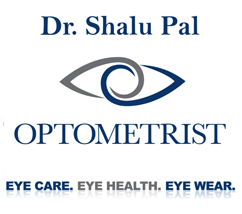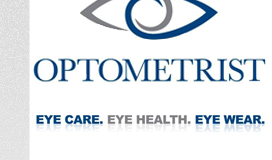Senior Vision
Patients over the age of sixty five have a higher incidence of several visual problems. In light of this all seniors require a complete oculovisual assessment with their optometrist at least once per year.
Presbyopia the inability to focus on near objects starts in our fourties. With presbyopia comes the need for reading glasses or bifocals. After the age of sixty five the strength of your reading glasses or bifocals may change periodically.
One of the more common concerns for seniors is the development of cataracts. All patients develop cataracts. They are more common beyond age sixty five but they can occur at any age even in babies. The normal lens inside the eye is clear. A cataract occurs when this lens becomes cloudy. The cloudiness causes blurred vision increased glare when night driving changes in eyeglass prescription and decreased contrast sensitivity. To improve these visual impairments initially optometrists may be able to change the prescription in the patient’s eyeglasses. Ultimately surgery is required to replace the cataract with a clear artificial lens.
As you age the tear glands produce fewer tears. Frequently seniors will complain of dry eye which causes the eyes to feel dry gritty and burn.
Conversely many seniors will complain of excessive tearing otherwise known as epiphora. There are openings in the inner corners of the eyes on the upper and lower lids. These openings lead to tear ducts that drain tears from the eye into the nose and ultimately into the throat. Our skin loses it’s elasticity with age causing the lid margins to droop. This greatly decreases the ability to drain tears from the eye. As a result the tears spill over onto the face.
The eyelid margins can also turn inwards towards the eyeball leading to a condition called trichiasis. Trichiasis results in several of the eyelashes scratching or poking the eyeball. Patients over the age of sixty five are at a higher risk of this. It results in sudden pain irritation and tearing. The involved eyelashes need to be plucked by an optometrist. In recurrent cases surgical intervention is required.
Macular degeneration is another big concern when examining the eye’s of seniors. The macula is the area at the back of the eye where most of our vision is focused. The macula can suffer reduced blood and nutrient supply resulting in a breakdown of the tissue. This can cause mild to severe vision loss. Frequently early signs of macular degeneration can be detected before the patient notices any vision change.
The risk of developing glaucoma significantly rises after the age of sixty five. Glaucoma initially causes loss of peripheral vision that is usually not noticeable to patients. It generally is caused by increased eye pressure; however you can develop it even with normal eye pressure. Early detection is crucial in preserving vision.
This is just a short list of the many eye conditions that increase in likelihood with age. Early detection is critical limiting the amount of vision loss. Optometrists are highly trained professionals educated to diagnose and treat eye diseases and visual problems.





